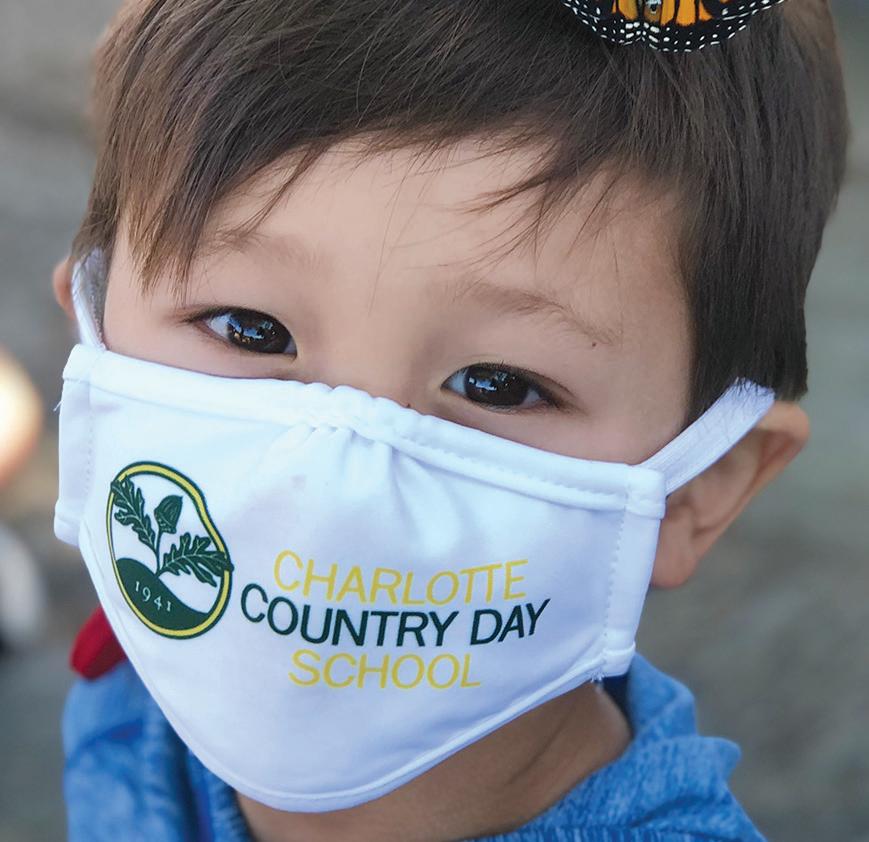
7 minute read
R I S I N G A B O V E: IN-PERSON LEARNING AND A GLOBAL PANDEMIC
After a springtime emergency transition to remote learning and lockdown because of the COVID-19 global pandemic, August 2020 brought a palpable sense of joy on campus as students and teachers, friends and colleagues, coaches and players, reunited in person—albeit masked, socially distanced, and with many new protocols in place. Despite the uncertainties of the 2020–21 school year, our community rose above the challenges to give students the best experience possible and continue to meet our mission.
By Lee-Anne Black, editor
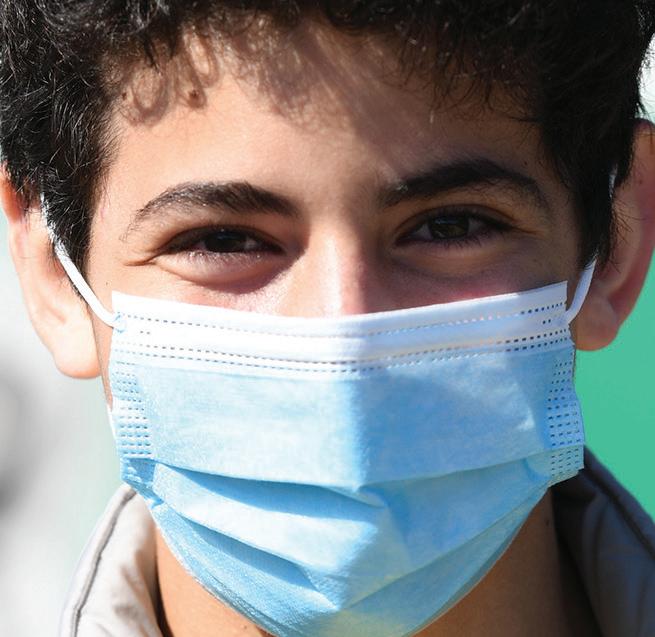

How do you safely deliver the benefits of in-person learning to 1,700 students? How do you equip faculty with the expertise needed to navigate both in-person and remote teaching? How do you keep current parents informed and prospective parents engaged when they can’t visit campus? How do you allow students to safely take part in pursuits such as athletics, theater, or academic clubs? These were just a few of the looming questions that faced Country Day administration a year ago when they committed to doing everything they could to have students and teachers on campus for the 2020–21 school year, while mitigating risk from the global pandemic.

Answering these questions meant a very busy summer for everyone. Teachers took part in a minimum 20 hours of professional development to hone their skills in delivering remote learning. The Administrative Council counted desks, measured spaces, thought creatively, and developed a blended learning plan that allowed for students to be on campus every other day in Middle and Upper School, and in pods of 10 in Lower School.
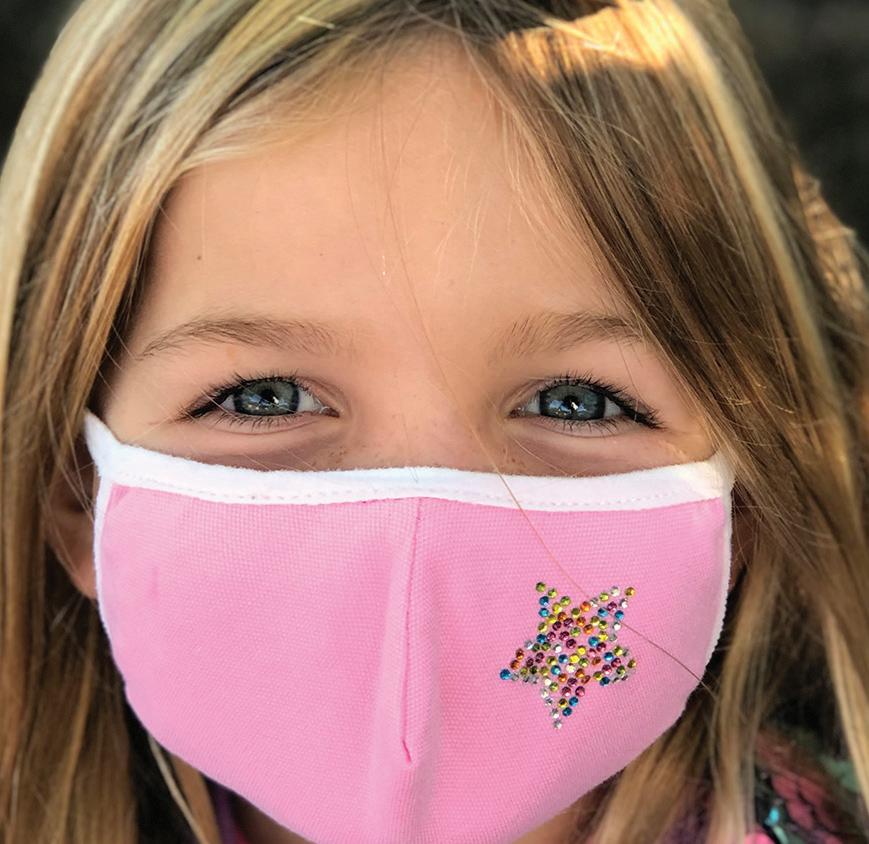
Plant Operations staff outfitted classrooms with distanced desk set-ups and plexiglass, while Information Technology installed speakers, cameras, and increased bandwidth to support blended learning. The nurses, informed by the knowledge and advice of our partners at Atrium Health, developed new policies, including a compliance pledge, and daily screening app and temperature checks. The Admissions team created all new events and Web resources for its virtual season. And the list goes on.

The first weeks of school were especially challenging as teachers and students adjusted to new routines and schedules, juggled new technology, and generally worried if this was even going to work. Parents, who couldn’t walk their children to class, visit for lunch, or attend an athletic event, placed their trust in the school in a way never asked of before.
In a letter to parents, faculty, and staff, Head of School Mark Reed wrote: “One of the strongest aspects of Country Day is our shared sense of community. After 13 days of school, I have nothing but profound respect and appreciation for how this Country Day community has responded to the pandemic’s challenges and uncertainties. Faculty and staff have devoted great time and energy into transitioning and adapting to enable us to maximize learning both on campus and remotely. In fact, I consider them heroes. Our students are showing resiliency and confidence as they accept the differences and embrace the new academic year. And, our families have stepped up to provide support, compliance, and partnership that allows us to serve our mission and students.”

For most of the academic year, Country Day operated within our blended learning model and we learned a few things along the way. Here are perspectives from a few faculty and staff on this historic year:
BILL MULCAHY, Head of Lower School: This school year I have seen our Lower School students thrive. Why? Because of the exceptional social-emotional instruction and support in classrooms, and the joy brought by being together. Academic learning doesn’t occur separately from social-emotional learning. The two are deeply intertwined. When students feel safe, connected, and happy, they are most successful academically.”
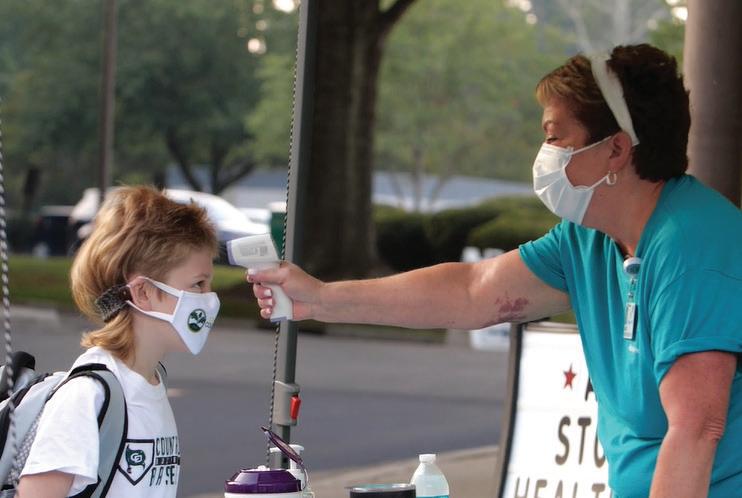
Our partnership with Atrium Health provided an additional layer of confidence and health expertise in developing our plans and making decisions to keep our community safe. Daily health screenings were a key component in our community’s vigilance in keeping our positivity rates well below the city, state, and national averages.
KAREN SULLIVAN, Lower School computer science: “After 30+ years of teaching, this year of being assigned as a kindergarten support teacher has been stunning! I have learned so much about the amazing kindergarten curriculum and the innovative minds and energetic spirits that teach our youngest learners. The care and love this team has for their students is visible in everything they do, and I have stood in awe, day after day, watching them teach and our students learn. I will be happy to return to the computer lab, but I will always be grateful for the experience I have had this year. With admiration and appreciation, I thank Sherry Harris and Ellen Thomas for welcoming me onto their teaching team for this remarkable year.”

DARRELL BACH, Upper School Math Department chair: “I have made countless videos of my lessons this year, and they will serve as resources for future students—mostly for those who miss class or need to hear and see an explanation again. I also have a much greater appreciation for my time in class with my students. I will definitely structure more lessons next year that don’t use technology so students will interact with each other directly and build those important relational skills.”
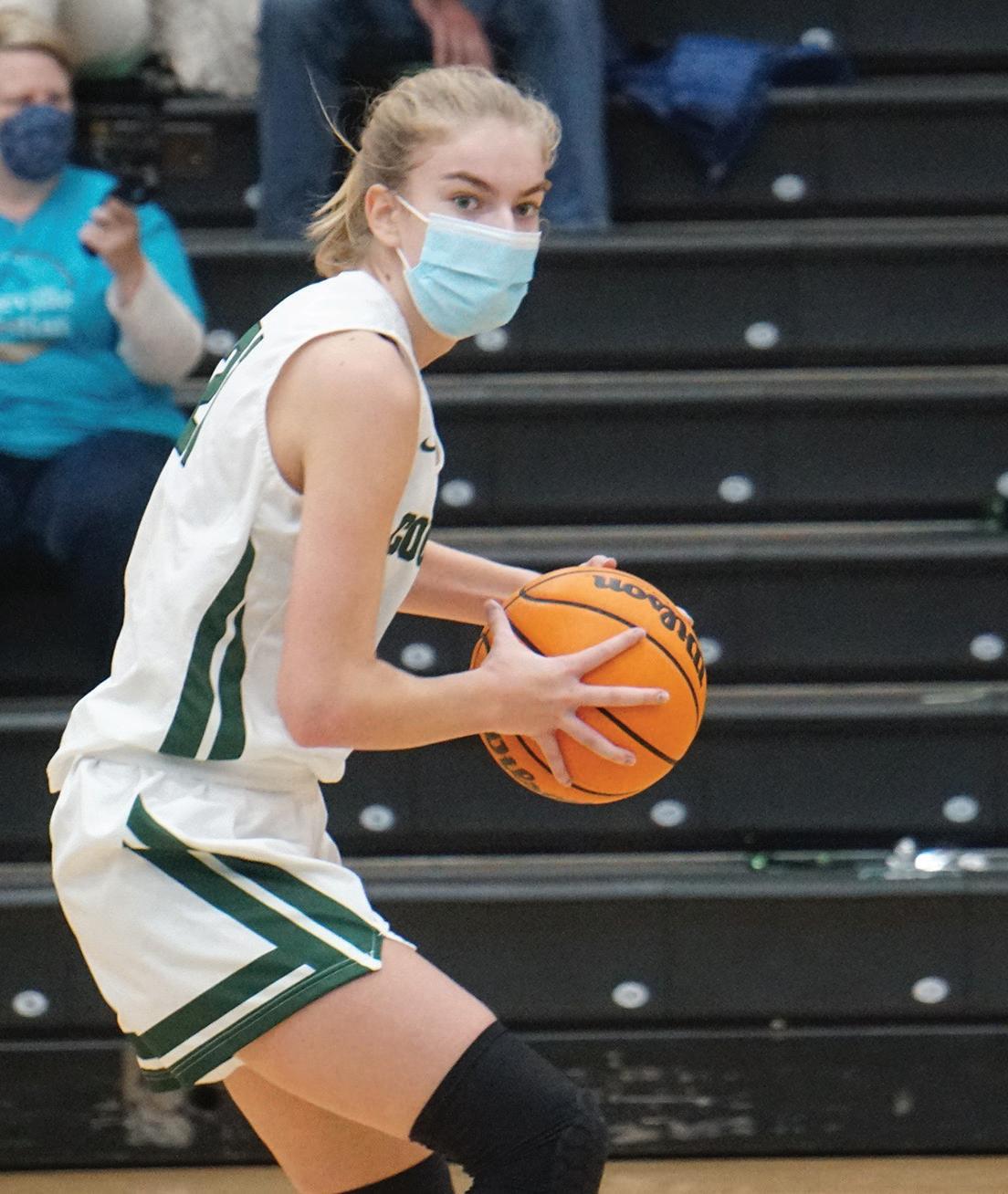
Masks, social distancing, and parents-only attendance at games were a part of the athletics program for most of this year.
KELLY PATTERSON, seventh-grade social studies: “Each year we match students with local liaisons who represent the countries they are studying in class. Obviously, that was not possible this year, but David Lynn and Jessica Newman in International Studies offered to make those points of contact and facilitate the Zoom calls. By going virtual, we were able to broaden the experience to a greater range of countries and liaisons living in those places, thus allowing the students to engage more deeply. This year made us realize our liaisons don’t have to be able to come to campus.”
ADA CARLEVATTI, Middle School art: “Because I didn’t know what sort of art supplies students had at home, I initiated more choice-based projects. For example, for our design career unit, I had students who chose to make LEGO stop-motion videos, sew dresses, and interior design dioramas. This model of learning completely transformed my teaching forever. I will always include choicebased projects for my students.”

CATHERINE ODUM, associate director of College Counseling: “While we much prefer to meet with students in person, rather than virtual, we have seen higher than usual attendance at all our evening Zoom parent meetings. Also, recording those sessions has been a great benefit; it has allowed many more parents to ‘attend’ the information sessions, which gives everyone more flexibility.”

Joe Gardner leads his in-class (Alpha Day) and at-home (Omega Day) ninth-grade students in a synchronous discussion on their recent poetry readings.
STEWART PEERY, IB coordinator and Upper School science: “Overall, I think this year helped remind me of the importance of empathy and showing you care as a teacher. That’s something that’s been on my mind the last few years, but it was especially important this year.”
SIMON KEILTY, Middle School science: “Challenges like those created by remote and blended learning created opportunities to rethink and invent publicly. I find the frequent, classroom technical problem-solving adding value to our classroom dynamic. Both teachers and students are learning and adapting together. It’s good for students to see me struggling with sound or troubleshooting presenting from multiple devices.”
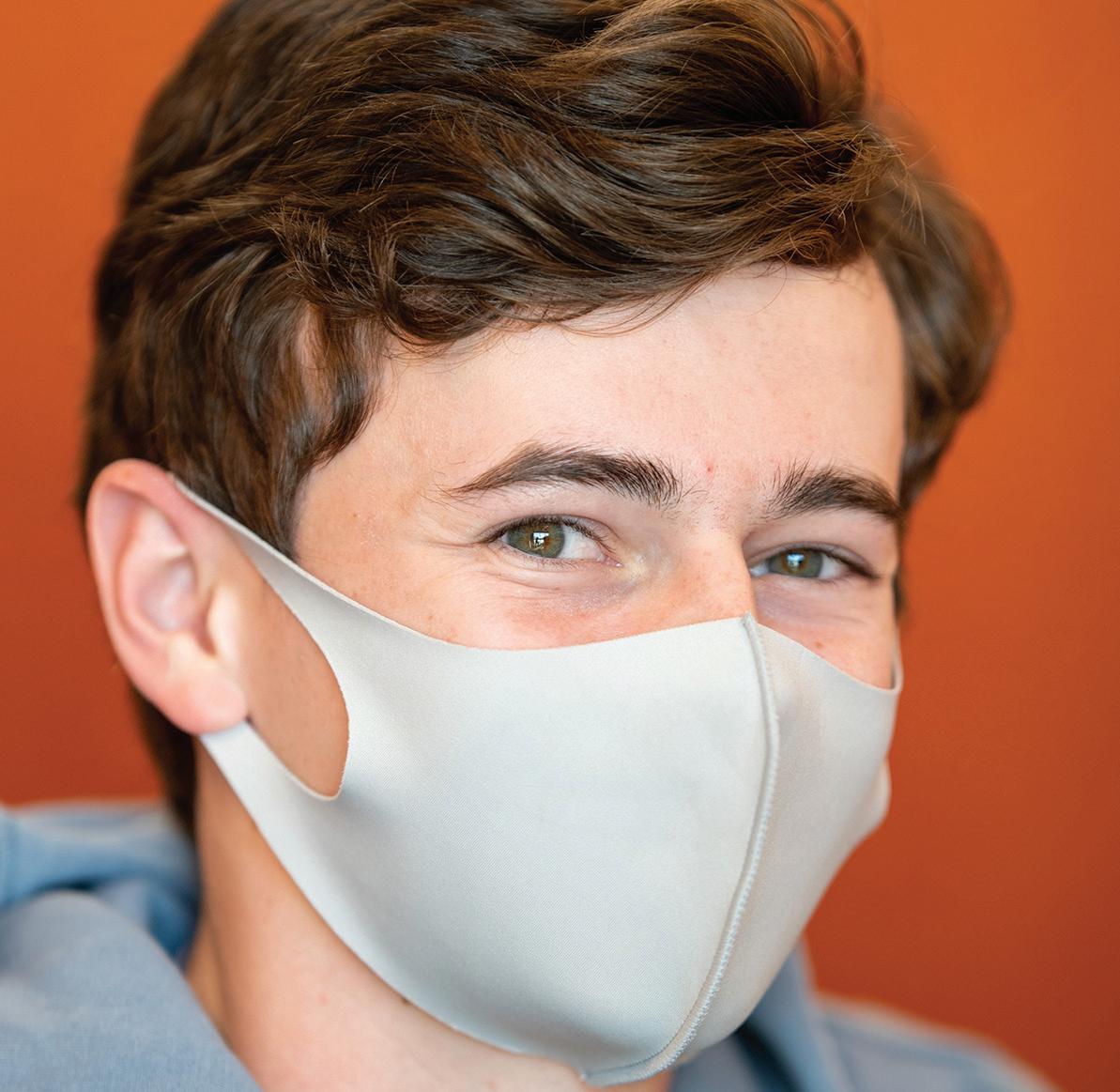
KASEY SHORT, Middle School English: “As a pivot from our usual in-person debates, we introduced an ‘Elevator Pitch’ video assignment that provided students an opportunity to explore critical issues, while practicing research, writing, and speaking skills. This assignment provided my students with positive examples from their peers of how to use facts to support a claim and how to listen to various perspectives and even strongly opposing views with an open mind. It’s a virtual activity I definitely plan to continue after we return to full in-person instruction.”
PATTI DANIEL, fifth-grade LA/SS: “I’m a Luddite when it comes to technology and I was admittedly nervous about being on campus, but I am so very thankful for this year. People have truly worked together like never, ever before. It has been a blessing working during this time.”

NANCY EHRINGHAUS, director of Admissions: “Our team helped with carpool for the first month. I think it really helped to calm nerves among our new families as they saw us helping their little one out of the car, masks on, and making their way to an unknown classroom. This year has been challenging but also so rewarding in seeing how everyone stepped up in so many ways for our children and families.” Fortunately, by April 6, as a result of diminished positivity rates and widespread vaccinations, we were able to ease some social distancing protocols and bring all students together again for daily on-campus learning, much greater attendance at athletic events, and modified events such as Spirit Week, Senior Prom, and Commencement and Moving Up ceremonies. We are grateful for everyone in our community for rising above to make this extraordinary year possible!
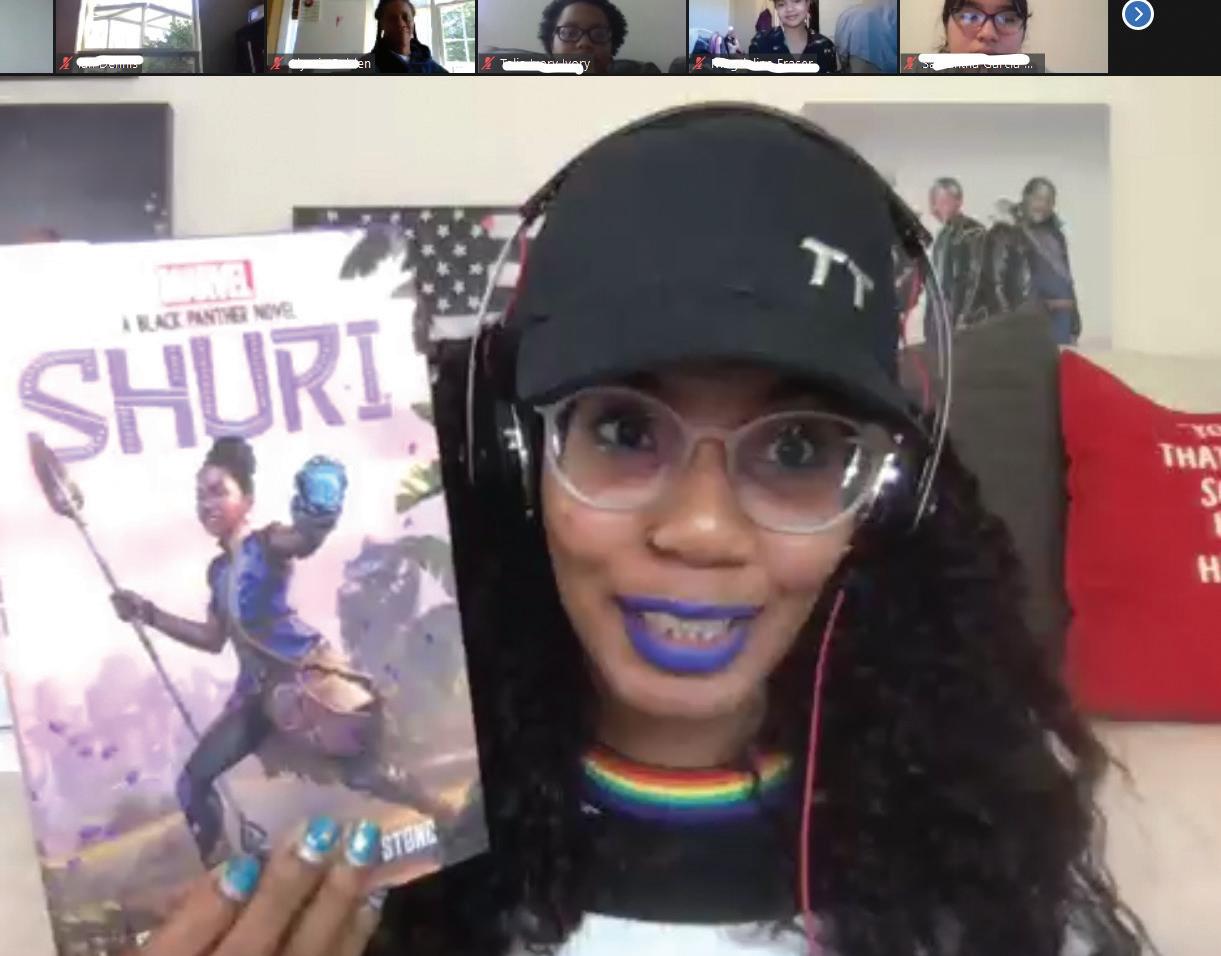
Bestselling young adult author Nic Stone joined us via Zoom for our annual Diversity Guest Author Series. In addition to presenting to our Middle School students, 400+ CMS middle and high school students joined the call. This was one of many, many, many Zoom and Teams calls held this year to engage groups of students, parents, alumni, and prospective parents.
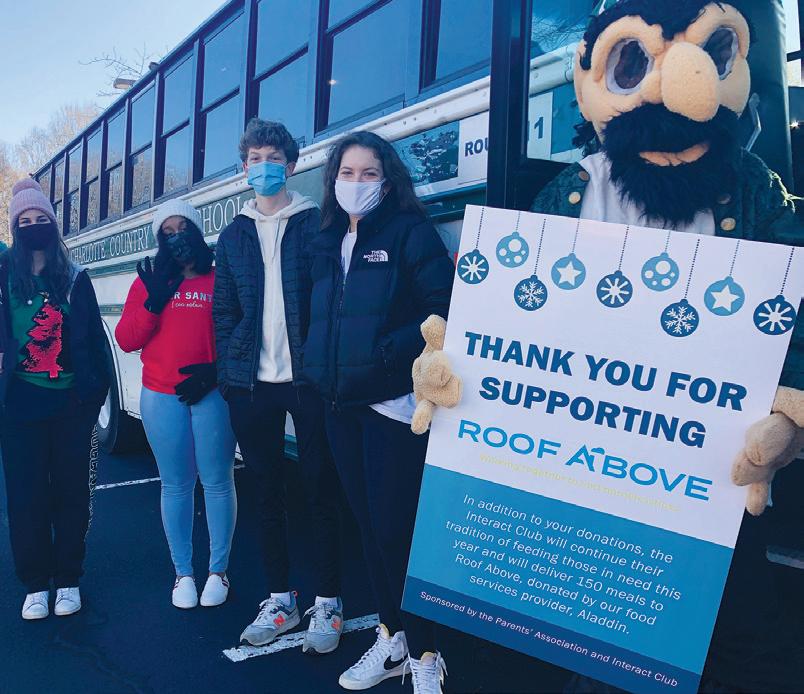
This year, the Interact Club could not host their annual luncheon for guests without permanent housing, and the Parents’ Association couldn’t hold the Holiday Breakfast. So they partnered on a campus drive-thru donation for Roof Above. The students delivered hundreds of donations of hats, gloves, and socks to Roof Above, along with boxed lunches courtesy of Aladdin Foods.
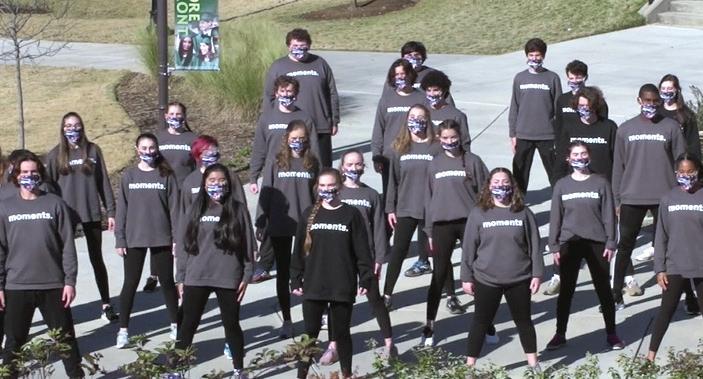
The Upper School Theater department got creative by using the campus as their stage to safely film “Moments,” a collection of numbers from various musicals that showcased student talent.










